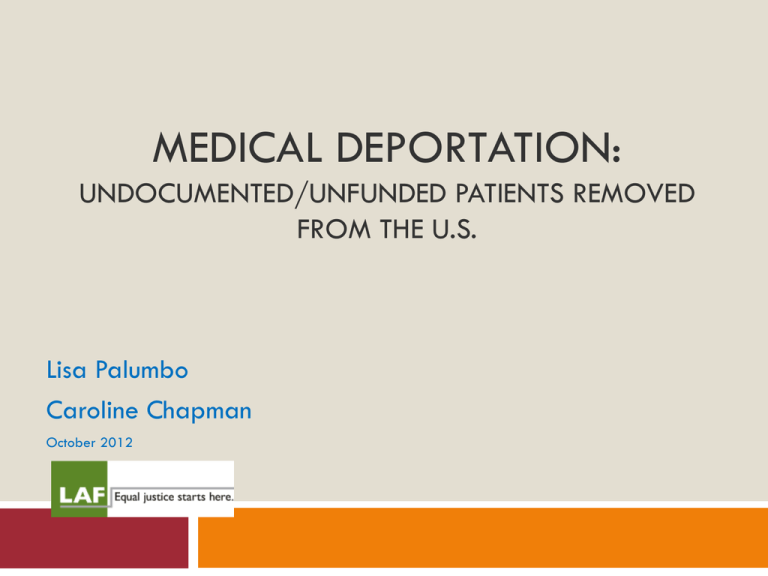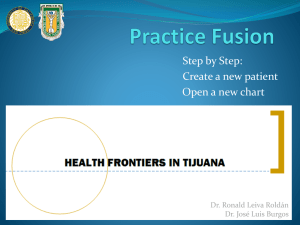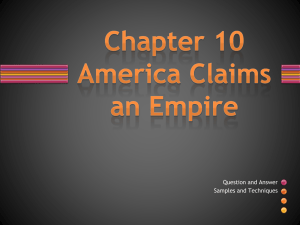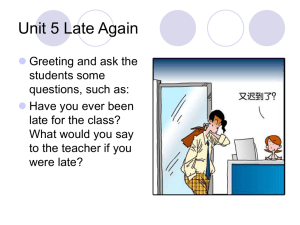
MEDICAL DEPORTATION:
UNDOCUMENTED/UNFUNDED PATIENTS REMOVED
FROM THE U.S.
Lisa Palumbo
Caroline Chapman
October 2012
Medical Repatriation vs. Medical Deportation?
Medical Repatriation:
Returning a non-citizen to their home country based on their wishes. Medical
repatriation can allow non-citizens to move closer to relatives and a familiar
culture while they receive long-term care. However, it can raise concerns if
people are sent to facilities that cannot adequately meet their medical needs
or they feel pressured to return.
Medical Deportation:
Transferring patients with disabilities (usually uninsured and undocumented)
who have significant long-term care needs, outside the United States, either
(1) directly from a healthcare facility, or
(2) through a court order, and
(3) without the informed consent of the individual involved.
The Dilemma
Medical repatriation/deportation can create tension
among the parties involved:
Between
hospital staff and the patient;
Between staff and the patient’s family and friends, or
legal guardian;
Between the patient and his or her own Government.
When medical repatriation becomes deportation
When the patient does not consent to return,
repatriation is effectively a deportation from the
United States.
When it interferes with the federal government’s
exclusive authority to remove non-citizens from the
United States.
How does medical deportation play out in the
healthcare setting?
Patient is admitted to an acute-care hospital under EMTALA;
Patient’s condition stabilizes and acute case is no longer need. Patient still needs long-term care either
at home or in a nursing facility;
Patient is ineligible for insurance/Medicaid after possible emergency Medicaid is no longer
applicable;
Hospital may not discharge patient “to the street.” Must provide an appropriate discharge plan under
federal law;
Hospital petitions the court for a guardian for patient and, once obtained, petitions the court to
approve a discharge plan removing the patient from the U.S.
Applicable statutes and regulations
EMTALA 42 USC §1395dd:
Bars hospital from “dumping” uninsured/undocumented patients
Gives private right of action, but obligation on hospital ends once
“stabilized”
Medicare Condition of Participation § 482.43(c)
Requires hospital to develop discharge plan to “adequate” facility,
even for stabilized patients
Gives no private right of action
Federal Immigration law 8 U.S.C. § 1103(a)(1).
The jurisdiction for such proceedings lies with the Department of
Homeland Security, usually carried out through the Executive Office
for Immigration Review, our national immigration court system.
Central legal issues related to Medical Deportation
Whether discharge to a facility abroad had the patient’s
informed consent?
See 42 USC §13xx 42 C.F.R. § 482.43(c)(7).
Whether discharge and transfer to a facility abroad implicates
federal immigration law?
See 8 U.S.C. § 1103(a)(1).
Whether the discharge and transfer will be to an appropriate
facility that can meet the medical needs of the patient?
See 59 Fed. Reg. 64149.
Medical Deportation:
The Case of Luis Jimenez
Luis Jimenez was an undocumented Guatemalan national, working in Florida. He
is a Mayan Indian, originating from the highlands of Guatemala;
A drunk driver in stolen truck struck Luis;
Luis was brought to Martin Memorial Medical Center on 2/28/00 in a coma with
brain damage;
Luis was later adjudicated incapacitated by a Martin County court;
The Court appointed his cousin (Gaspar Montejo) as his legal guardian;
When Luis’s condition stabilized, Martin Memorial determined Luis was “ready for
discharge” (He had emerged from coma with serious physical/cognitive deficits.)
(cont.)
The Case of Luis Jimenez
Martin Memorial transferred Luis to a long-term care facility;
Luis was later returned to Martin Memorial for emergency services;
Luis’s family could not take him home in Florida;
Martin Memorial began efforts with Guatemalan Consulate to send Luis back to
Guatemala;
Martin Memorial & Guatemalan Consulate agreed to find another guardian and facility;
Guatemalan Health Ministry promises free care;
Luis’s U.S. guardian, Gaspar Montejo, refused to consent to the transfer;
Cont.
The Case of Luis Jimenez
June 2002, Martin Memorial sought a court order in guardianship case to allow
medical repatriation without consent;
Court authorized transfer after one-and-a-half-day hearing;
Court ordered guardian Montejo to “refrain from frustrating the hospital’s discharge
plan to relocate [Jimenez] back to Guatemala under the authority and guarantee of
the Guatemalan Ministry of Health”;
Montejo appealed court decision immediately;
Meanwhile, Martin Memorial flew Jimenez to Guatemala on private air escort service
at a cost of $30,000;
Luis is admitted to a rehabilitation facility, but then evacuated;
His family in Guatemala took Luis to another facility that refused to admit him for
unclear reasons; Luis is then taken home to his mother, where he remains.
Luis Jimenez in Guatemala
Now 37, Mr. Jiménez, who cannot walk and has the mental age of a child, lives in a one-room house in a remote village, tended by
his elderly mother. He is largely confined to his bed and suffers from routine seizures. When The NY Times visited him in the summer
of 2009, he had not received medical care for over five years.
Luis Jimenez’s Legal Challenges
CASE 1
Guardian Montejo appeals the transfer order (even though Martin Memorial had already
transferred Luis), challenging Circuit Court’s authority to order the medical transfer. Florida
Appellate Court holds the order was outside the state courts’ jurisdiction, was tantamount to
deportation, and preempted by federal law.
See Montejo v. Martin Memorial Medical Center, 874 So.2d 654 (2004).
CASE 2
Guardian Montejo sues Martin Memorial for false imprisonment of Luis through its transfer
of him. Florida Appellate Court holds that Martin Memorial can be liable if its actions in
the transfer were unwarranted and unreasonable. At trial, the judge instructed jurors that
the appellate court had already found three of the four requirements for false
imprisonment. The jury finds Martin Memorial’s actions did not meet the fourth prong, that
its actions were unwarranted and unreasonable under the circumstances.
See Montejo v. Martin Memorial 874 So.2d 654 (2006).
See Jury Rules for Hospital That Deported Patient. Deborah Sontag. New York Times, July 27, 2009
http://www.nytimes.com/2009/07/28/us/28deport.html
Recent medical deportation cases in Illinois
The case of Quelino Ojeda Jimenez
Quelino Ojeda Jimenez arrived in Chicago in August 2010 and began working in construction on a building near
Midway Airport. Ojeda pulled hard on a sheet of metal, fell more than 20 feet to the ground, was rendered
quadriplegic.
Quelino remained in the Oak Lawn hospital until 12/22/10, when he was ushered to an air ambulance that took
him to the Mexican city of Oaxaca. He remained in a small-town hospital incapable of meeting his needs.
Quelino died in January 2012.
See Quadriplegic immigrant dies after Chicago-area hospital returned him to Mexico, Chicago Tribune, January 04, 2012|By Becky
Schlikerman http://articles.chicagotribune.com/2012-01-04/health/ct-met-quelino-death-20120104_1_quelino-ojeda-jimenez-mexicanfamily-mexican-hospital.
See also 02/07/2011Oaxacan odyssey, photographs of Tribune photographer’s trip to Oaxaca, where Quileno came from.
http://newsblogs.chicagotribune.com/tribune-photo-nation/2011/02/for-almost-four-months-doctors-and-nurses-at-advocate-christmedical-center-cared-for-the-young-mexican-laborer-who-had.html
Medical deportation cases in Illinois
The Case of Barbara & Peter Latasiewicz
Barbara is a Polish national who entered U.S. on tourist visa in 1990 with her then-15 year-old son Peter
after husband abandoned them.
Barbara never returned to Poland. She lived and worked in Chicago suburbs as a housekeeper.
In September 2009, Barbara suffered a severe stroke while working, and was taken to Adventist
LaGrange Memorial Hospital. She was eventually stabilized.
Barbara remained in Adventist Hospital for 2 ½ years:
Ineligible for Medicaid or Medicare
No long-term care facility would take her
Son (now a U.S. citizen with 2 children) was bankrupt after business failed and could not afford her care.
The Case of Barbara & Peter Latasiewicz
Hospital petitions for the Office of State Guardian (OSG) to be appointed as Barbara’s
Guardian; Court so orders in June 2010;
February 2012, Hospital files petition to transfer Barbara to stroke unit of university
hospital in Krakow, Poland. (Polish hospital never informed the stroke was over 2 years prior
and Barbara no longer in need of acute care);
OSG files motion to dismiss motion for transfer, based generally on preemption grounds.
Barbara tells her guardian and her son that she does not want to go. She said she feels
she “had no alternative.” Her only family in Poland: a brother she had not seen in 20 years;
Probate Court grants Hospital’s motion. Orders OSG to consent to Barbara’s removal from
U.S.;
March 2012, Hospital flies Barbara to Krakow on medical flight;
The Office of the State Guardian chose not to appeal the decision to approve the transfer
order in Barbara’s case;
After Barbara’s departure, with LAF, U.S. citizen son Peter files Motion to Reconsider Court’s
order on preemption grounds and other claims, including the significant immigration
consequences resulting from her departure;
Barbara’s case drew local and national attention.
Rock Center with Brian Williams: Permanent Patients
http://www.msnbc.msn.com/id/21134540/vp/47150792#47150792
Chicago Tribune, Polish Immigrant Headed Home,
http://articles.chicagotribune.com/2012-03-01/news/ct-met-polish-immigrantgoodbye-20120302_1_hospital-staff-poland-adventist-midwest-health. Photo gallery,
http://www.chicagotribune.com/news/local/chi-110916-polish-immigrantpictures,0,4126857.photogallery;
Chicago Tribune, Ready to Leave but Nowhere to Go.
http://www.chicagotribune.com/videogallery/64804299/News/Ready-to-leave,but-nowhere-to-go
Peter’s Motion to Reconsider
the transfer order
Peter’s legal claims
Probate Court did not have authority to approve a discharge plan removing
Barbara from the U.S.;
Such an order constituted a de facto removal because Barbara did not consent to
return to Poland but was forced by order of the court to leave the U.S.;
Probate Court’s order was preempted by US immigration law, as issues of
removal are the subject of federal field preemption, meaning state may not act
within the area at all. As most recent preemption case, see Arizona v. U.S., 132
S. Ct. 2492 (2012);
Case was not moot even though Barbara no longer in the U.S. because Barbara is
now subject to penalties barring her return to the U.S. for 10 years, to which she
would not have been subject if she had remained in the country.
Barbara in Illinois and Barbara today
Shortly after admission to Krakow hospital, transferred to another nursing home in
Krakow, then to another nursing home in the town where she grew up, hours from
Krakow. None of her family or friends lives in this area;
Barbara now ineligible to return to the U.S. for 10 years, even if Peter files for
her to come to the U.S.
Legal Issues in Medical Deportation
Standing
Third Party Standing (arose because Barbara was already out of the country)
Struck v. Cook County Public Guardian: Illinois decision questioning ability of
ward’s family member to sue. 387 Ill. App. 3d 867 (1st Dist. 2008)
(“interested persons” under 755 ILCS 5/1-2.11);
Extra complication: Peter didn’t intervene earlier for financial reasons
Mootness
Striking the order might ease transferred patient’s path back to the U.S.;
Immigration decisions finding mootness not applicable even after non-citizen
deported. Eg., Peralta-Cabrera v. Gonzales, 501 F.3d 837 (7th Cir. 2007).
Establishing Protocols for Medical Repatriation
What should protocols include?
Essential aspects of any protocols
Consent: Find out whether the patient wants to return to their country.
Immigration remedies, rights and consequences upon departure from the U.S.:
Provide indigent non-citizen patients with referrals to free or low-cost legal advice to
receive information about their immigration remedies and about the consequences of their
future immigration status if they return to their home country.
Many patients will not know if they are eligible to apply for immigration benefits until a
thorough screening of their and their family’s background is carried out.
Healthcare alternatives: Consider whether there are alternatives for hospitals like
paying for home health care;
paying for nursing home care if home health care is not option,
keeping patient,
paying for immigration advice and consultation (and even representation).
Some Examples of Immigration Status
and Medicaid Eligibility
VAWA: Abused non-citizens:
Non-citizen (or the noncitizen's child under age 19) has been abused or subject to mental
cruelty by the U.S. citizen or LPR, or by a member of that relative's family who lived with
them;
Lawful permanent residents
A person who enters the U.S. on or after 08/22/96 must live in the United States for 5
years after being lawfully admitted, to meet citizenship status.
T Visa:
Trafficking- Human trafficking can include forced labor, work in sex trade, servitude or
other serious labor violations
Eligible for Medicaid prior to VAWA application approval if non-citizen needs assistance, at least in
part, due to the abuse, and no longer lives with the abuser or plans to live separately within one
month after receipt of assistance.
Eligible for Medicaid before T visa granted.
Workers’ Compensation
Ongoing Legal Issues in Medical Deportation:
An Open Discussion
Some Questions:
In cases such as Barbara, what would be the cause of
action/claim if a straight appeal is not pursued?
Who would be the Defendant?
What other options might be available for long-term care?
Were the patient is already out of the U.S., will case survive
mootness challenge?
Resources/Bibliography
Lori A. Nessel, The Practice of Medical Repatriation: The Privatization of Immigration
Enforcement and Denial of Human Rights, Wayne Law Review, Vol. 55, p. 1725, 2009.
Emily R. Zoellner, Medical Repatriation: Examining the Legal and Ethical Implications of an
Emerging Practice, Washington University Journal of Law and Social Policy. Vol. 35:515
(2010) http://law.wustl.edu/journal/32/Zoellner.pdf.
Adriana Ortega, Health Care for All: Immigrants in the Shadow of the Promise of Universal
Health Care. 35 AM. J.L. & MED. 185 (2009).
Kendra Stead, Notes and Comments: Critical Condition: Using asylum law to contest forced
medical repatriation of undocumented immigrants. Northwestern University School of Law
Printed in U.S.A. Northwestern University Law Review Vol. 104, No. 1 (2010).
Contact Info/ Questions?
Lisa Palumbo, lpalumbo@lafchicago.org
(312)
347-8374
Caroline Chapman, cchapman@lafchicago.org
(312)
347-8388









